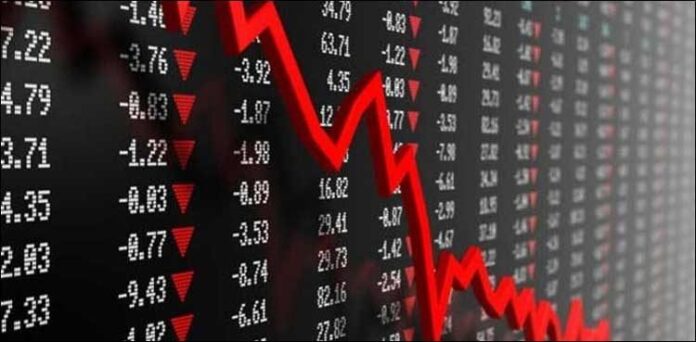TOKYO: Most Asian stock markets sank on Wednesday, catching up with the sell-off on Wall Street after Iran’s ballistic missile strike on Israel provoked fears of a wider regional conflict, while crude oil pushed higher on the risk of supply disruptions.
Investors flocked to safer assets, keeping U.S. Treasury yields depressed in Asian time, while gold traded not far from an all-time high.
The safe-haven dollar traded close to its strongest in three weeks versus the euro. Macroeconomics also buoyed the dollar, with a resilient U.S. job market arguing for a smaller Federal Reserve interest-rate cut in November, and euro zone inflation trends backing a European Central Bank easing this month.
Japan’s Nikkei slumped 2% as of 0444 GMT, while South Korea’s KOSPI dropped 0.6%. However, Hong Kong’s Hang Seng soared 6% as Beijing’s stimulus push continued to buoy sentiment.
That helped to lift MSCI’s broadest index of Asia-Pacific shares 0.6%, despite broadly fragile investor sentiment.
Mainland Chinese markets were shut for the week-long Golden Week holiday. Trading in Taiwan was suspended due to a typhoon.
U.S. S&P 500 stock index futures weakened 0.15%, after the cash index lost 0.9% overnight. But pan-European STOXX 50 futures pointed up 0.4%.
“In the chain of potential market volatility shocks, geopolitics will typically trump economics, corporate earnings, or a central bank response – largely because most market players are poor at pricing risk around these events,” said Chris Weston, head of research at Pepperstone.
“While these events typically reconcile in a market-positive fashion, the tail risk it can throw up is clearly significant,” Weston said. “The situation remains fluid, and the slightest calming or increased aggression in the rhetoric from Israel or Iran could result in a sizeable impact on sentiment in markets.”
Iran said early on Wednesday that its missile attack on Israel was finished barring further provocation, although Israel and the U.S. promised retaliation.
Brent crude futures gained 1.5% to $74.66 per barrel, extending the 2.5% advance from Tuesday. U.S. WTI futures climbed 1.7% to $71 per barrel, after Tuesday’s 2.4% rally.
“Speculation of an Israeli strike on Iranian oil fields seems unlikely, as such a move would likely drive oil prices toward $80, displeasing Israel’s allies, who are making strides against inflation,” said Tony Sycamore, an analyst at IG.
“Instead, strategic Israeli strikes on critical weapons factories and military objectives are more probable,” he said.
In such a situation, “there is hope for a return to the more contained shadow conflict that has persisted between Israel and Iran’s regional proxies” for most of the past year, Sycamore said.
Gold eased 0.3% to $2,654.27 per ounce, following a more than 1% jump in the previous session that brought it close to last month’s record high at $2,685.42.
Benchmark 10-year Treasury yields ticked down about 1 basis point (bp) to 3.7353%.
The dollar index , which tracks the U.S. currency versus the euro and five other major rivals, was steady at 101.27 after pushing as high as 101.39 on Tuesday for the first time since Sept. 19.
Europe’s shared currency was little changed at $1.1061 following a 0.6% drop in the previous session, when it dipped to $1.1046 for the first time since Sept. 12.
Euro area data on Tuesday showed inflation fell below the ECB’s 2% target last month, bolstering bets for a quarter-point rate cut on Oct. 17.
Meanwhile, U.S. figures overnight showed a solid economy, a day after Fed Chair Jerome Powell pushed back against the likelihood of another 50 basis point rate cut when the U.S. central bank meets next month.
Job openings unexpectedly increased in August after two straight monthly decreases, but hiring was soft and consistent with a slowing labour market.
Private payrolls data is due later on Wednesday, ahead of potentially crucial monthly non-farm payrolls numbers on Friday.
A crippling U.S. dock strike, that could cost the economy $5 billion each day, will also be front of investor minds, with hopes for a quick end dashed by a lack of active negotiation overnight.




